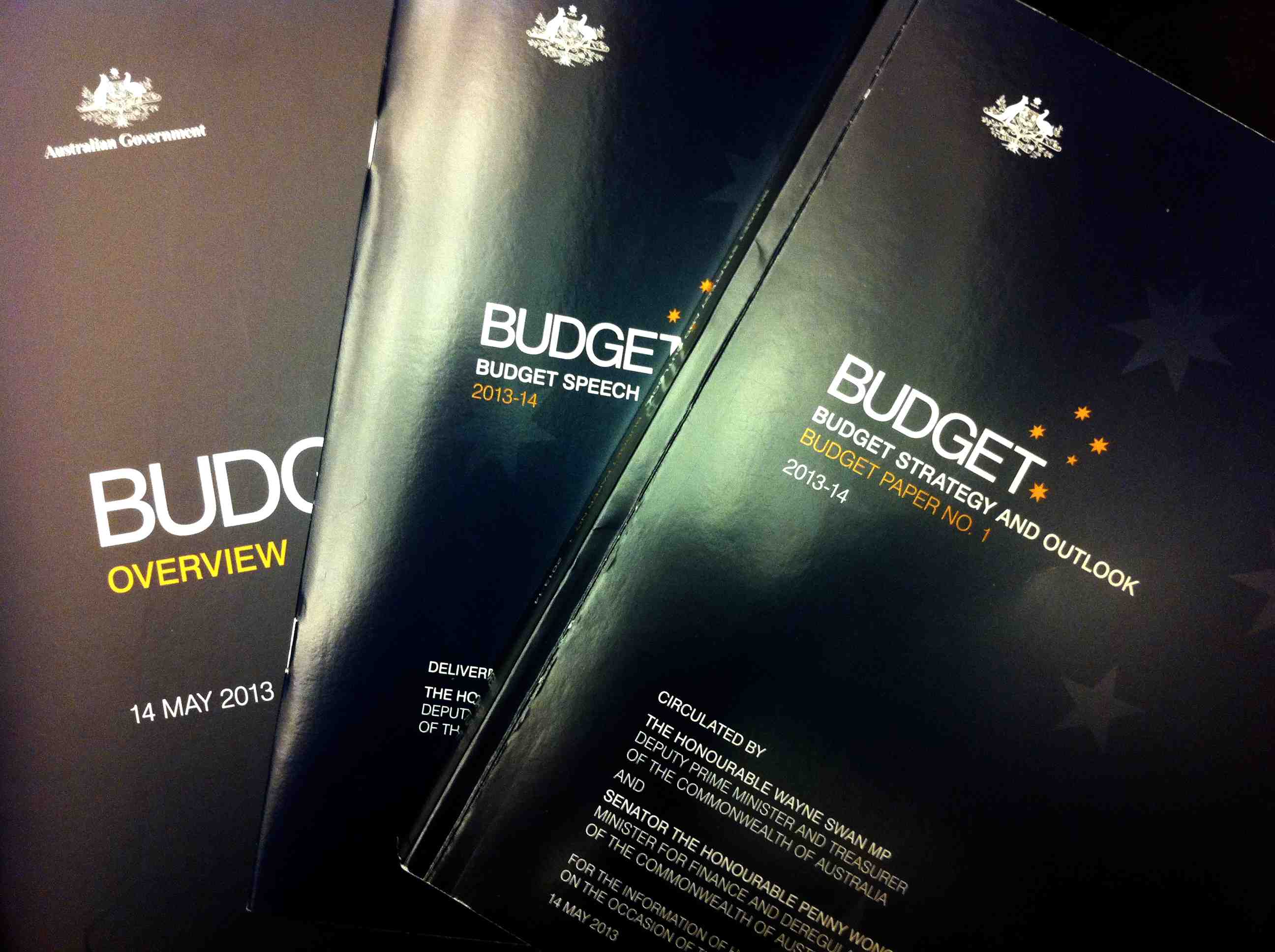Treasurer Wayne Swan has promised a return to surplus by 2016-17 despite posting an $18 billion deficit in today’s Budget.
The 2012-13 Budget promised a surplus of $1.5 billion, but the final figure will be a deficit of around $19 billion.
With an economy in transition from mining to non-resource drivers of growth, the Government says there is pressure on corporate profitability which has affected revenues.
Would-be parents, students, and foreign aid take a large hit with Government savings totalling $7.2 billion.
Two-and-a-half billion dollars would be saved by abolishing the Baby Bonus and replacing it with an increase to Family Tax Benefit Part A (FTB-A), while cuts to the universty sector of $2.8 billion were announced in April.
The controversial Baby Bonus – introduced by former prime minister John Howard – had long been derided as middle-class welfare.
Last year the Gillard Government reduced the payment from $5,000 to $3,000 for second and subsequent children born after July 2013.
For families not claiming Paid Parental Leave, the (FTB-A) will increase by $2,000 for a first child and $1,000 for a second or subsequent child.
Shifting the target date for foreign aid spending to reach 0.5 per cent of GDP will save an extra $1.9 billion.
At the same time, a broad range of law changes will close corporate tax loopholes saving more than $4 billion over the next four years.
The Government has made $43 billion in savings this year, taking the total amount of savings over the last six budgets to $180 billion.
Framing the Budget as pro-growth and pro-jobs, Teasurer Wayne Swan said the nation faced a clear choice – radical cuts or sensible savings.
“We have always put the interests of working Australians first.
“In this budget, we do so again,” he said.
Swan, delivering his sixth budget, said “cutting to the bone” would put Australian jobs at risk.
“Because of our deep commitment to jobs and growth we have taken the responsible course to delay the return to surplus.
“To those who would take us down the European road of savage austerity I say the social destruction that comes from cutting too much, too hard, too fast is not the Australian way.
“Just because the global economy took an axe to our budget, does not mean we should take an axe to our economy,” he said.
The Budget provides $9.8 billion over six years for improvements to the education system through its National Plan for School Improvement.
The 2-for-1 funding deal on offer to the states means new investment will average about $2.4 billion per year, well down on the $5 billion recommended in the Gonski report.
The Government has guaranteed funding of the reforms for the next decade.
“We know that a smarter Australia means a stronger Australia.
“We can return the budget to surplus without leaving our children an education deficit,” said Swan.
The implementation of DisabilityCare Australia will receive a $14.3 billion boost over seven years, taking total investment to $19.3 billion.
To be paid for largely by a 0.5 per cent increase in the Medicare levy, Swan promised the popular reform would also be fully funded for the next decade.
“Our current disability system is underfunded, unfair and fragmented.
“Tonight, we end the cruel lottery of the the current system,” he said.
The Government says falling tax revenues are to blame for the budget shortfall, and “responsible savings” are necessary.
At a packed press conference earlier in the day Swan showed journalists a series of graphs and figures to reiterate his point.
Since 2012-13 receipts have been revised down by $17 billion, while total-write downs since the 2008-09 Budget total $170 billion.
Since the 2012-13 MYEFO report, tax receipts have been revised down by $60 billion to the years 2015-16.
Swan said weaker tax revenue, caused in part by the high Australian dollar, had savaged budget revenues.
“Not since Hawke and Keating floated the dollar has it remained so high.
“This has put acute pressure on prices and company profits, weighing more heavily than expected on tax receipts,” he said.
Despite the drop in revenues, the Gillard Government is determined to be a low-taxing one.
The tax-to-GDP ratio in 2013-14 is expected to be 22.2 per cent, and Budget papers make it clear the goal is to stay below the 2007-08 level of 23.7 per cent.
During the five years prior the the GFC (the Howard Government was in power for four of these), the average tax-to-GDP ratio was 24 per cent.
“If we were taxing Australian families and Australian businesses like our predecessors did, we’d have an extra $24 billion in taxes … and be comfortably in surplus every year of the (forwards estimates)”, Swan said.
Defense receives an extra $9.8 billion over four years, and $3 billion over nine years for the purchase of 12 new EA-18G Growler aircraft.
Along with the centrepiece disability and
education reforms, the 2013-14 Budget has a strong focus on infrastructure investment.
If re-elected in September the Government will invest $24 billion on roads, rails and ports by 2018-19.
Local investments include $3 billion towards the Melbourne Metro rail upgrade, as well as $525 million to complete the widening of the M80 Ring Road.
“These investments will boost productivity, build capacity, improve safety, and relieve congestion, as well as improving the quality of life in our communities”, Swan said.
However, only $3 billion of the promised $24 billion is new money.
While Swan continues to sell the message that Labor is economically responsible, a persistent image of Labor profligacy remains.
While DisabilityCare Australia looks to have a (relatively) secure future under a Tony Abbott government, the Gonski recommendations for education reform will likely be abandoned.
Andrei Ghoukassian


